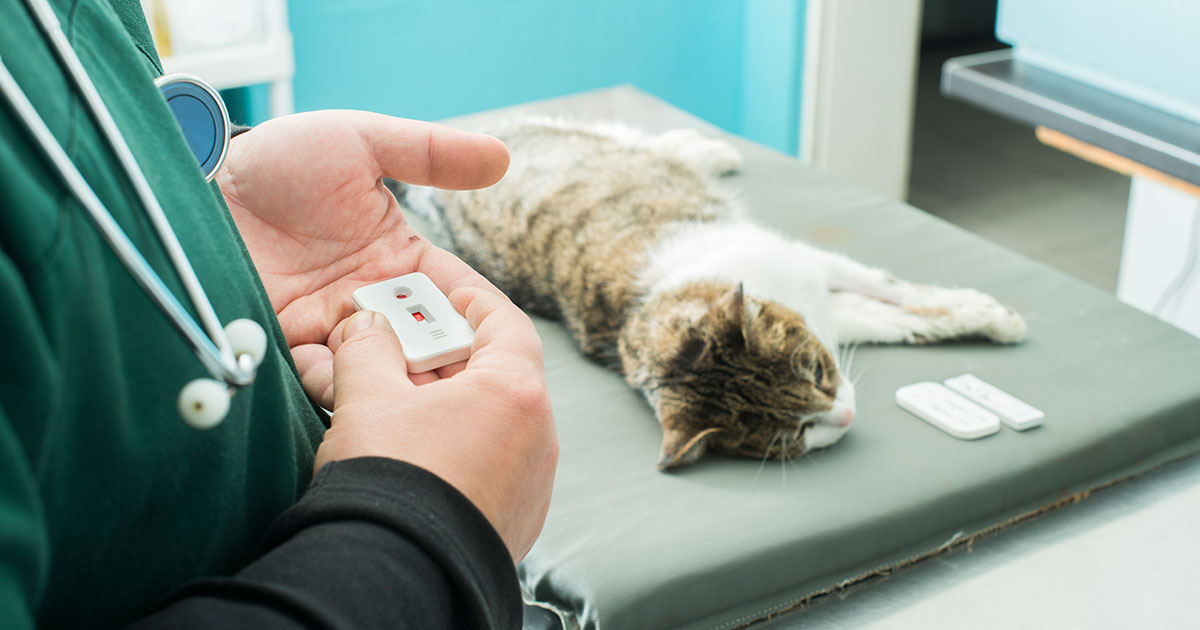5 Rare diseases in cats Progressive retinal atrophy (PRA), hyperadrenocorticism (Cushing's disease), Ehlers-Danlos syndrome in cats, taurine-deficiency dilated cardiomyopathy and retinopathy, feline papillomatosisThe vet’s role is to ensure the health and wellbeing of their patients; to heal their wounds and treat their illnesses. Therefore, it can be challenging to be confronted by diseases or conditions that are not often seen in cats, requiring differential diagnosis and the solving of complex puzzles in order to treat their patients – especially felines. |
5 Rare diseases in dogs Ectopic ureters, canine uveodermatologic syndrome, achromatopsia, immunoproliferative systemic intestinal disease and dermoid SinusEvery day, veterinarians are confronted with diagnostic challenges in the form of dogs with symptoms and no way to tell them where it hurts. There are some diseases and illnesses that vets see often, like ear infections, hip dysplasia, allergic reactions, dental disease and hot spots. But then there are some rare diseases that seldom make it to every vet’s examination table. |
My dog is shaking her head and pawing at her ears. She flinches when I touch her head. Ear infections in dogs and cats are one of the most prevalent complaints veterinarians see in their patients, and they are often recurring. Read more about the primary and secondary causes of ear infections, the symptoms, how they are diagnosed and how thEar infections in dogs and catsYou may notice a foul odour emanating from your dog or cat’s ears, or maybe the pinnae (ear flaps) are red and warm, or you can see a dark discharge (or pus) or inflamed ear canal. However, it would be your pet’s behaviour that alerted you to the potential problem to begin with: persistent scratching, head-shaking, pawing at their ears and/or vocalising while rubbing their ears. They may flinch when being touched on the head or even avoid your touch altogether. |
A guide to diabetes mellitus in dogs and cats We answer your questions about the symptoms, diagnosis, treatment and management of diabetes in dogs and cats.Dogs’ and cats’ endocrine systems work very similarly to humans’, and they experience similar disorders of the endocrine organs as humans do. This includes diabetes mellitus. Diabetes originates and presents in different ways between dogs and cats, but the mechanism is the same: the body is unable to use the glucose in the bloodstream. This occurs because either the pancreas does not produce enough insulin or the body is resistant to insulin secretion. |
All you wanted to know about senior pet care We answer your questions about caring for senior petsTime flies when you’re having fun – especially with a beloved dog or cat. Pets make our long days not only bearable, but worthwhile, and sharing affection with a pet helps us return to the moment when we’re anxious or overwhelmed. The only problem with pets is that they too get old, slow down, require additional special care, and a different approach to their health and wellbeing. |
YOU are your pet's best bet for successful treatment What happens when the vet cannot cure your pet? In this article, we address the responsibility of the vet and the pet owner; what makes diagnosis and treatment possible and what makes it difficult; and what to do when the vet doesn't have all the answerAs a pet owner, the veterinary clinic or animal hospital is your first port of call when your pet is showing concerning symptoms, and you are seeking a diagnosis and an effective treatment plan. The veterinarian’s main objective is to ensure your pet receives quality care that restores and even improves their health and wellbeing. We love animals and we want to see them well again – as much as you do. |
Feline Asthma My cat sounds like she has difficulty breathing and has regular coughing episodes. What's wrong with her?Feline asthma is a respiratory condition characterised by a cat having difficulty breathing, frequent episodes of coughing, retching and or attempted (unsuccessful) vomiting. The symptoms are triggered by environmental allergens like dust, pollen and other inhaled particles that activate the immune system. These symptoms are a result of the narrowing of airways due to inflammatory changes, as well as the thickening (hypertrophy) of muscles lining the airways and/or their constriction. Cat asthma can be acute (sudden onset) or chronic (progressive and long-term). |
Adverse Food Reaction in Pets My pet eats a premium pet food, but they are getting sick. Help!As logic would go, feeding your dog or cat a high-quality, premium pet food would ensure their nutritional needs are met and they would thrive and live a long and healthy life. This is every pet owner’s objective for their beloved pet. However, some pets – both dogs and cats – can experience what is called an adverse food reaction. In this article, we’ll explore what adverse food reactions are, what causes them, when to take your pet to the vet, and how adverse food reactions are diagnosed and treated. |
Pancreatitis in cats My cat is vomiting, lethargic and has no appetiteThe pancreas is an organ located near the stomach and alongside the small intestine. It is responsible for producing digestive enzymes and hormones (such as insulin) that regulate blood glucose. In cats, pancreatitis is a serious condition in which the pancreas becomes inflamed leading to poor appetite, listlessness, dehydration and vomiting. It is also commonly diagnosed together with other diseases and can have life-threatening and severe long-term effects. In this article we will discuss the causes, symptoms, diagnosis, treatment and prevention of pancreatitis. |
Gastric dilatation volvulus My dogs abdomen is distended and he's acting very restlessIt’s a scary situation when your dog looks like he has a bloated tummy, but he’s really experiencing a life-threatening medical emergency. Gastric dilatation volvulus or GDV is also called bloat, but it’s more than just a bit of air in the stomach. Its other name – gastric torsion – describes how, once inflated with air, the stomach can also twist around itself and cut off blood supply to other major organs. The body then goes into shock and the condition becomes life-threatening. |